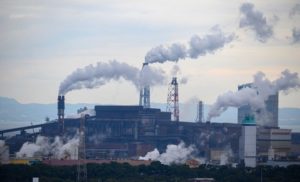An ISO 9001:2015, ISO 14001:2015, ISO 45001:2018 Certified Manufacturer.
-
Call Us Today
(+971) 6 5360 116
-
Working Hours
Mon - Sat: 8 am to 6 pm
-
P.O. Box 78774
Sharjah - UAE

25
AugEnsure access to affordable, reliable, sustainable and modern energy
Liu Zhenmin, Under-Secretary-General for Economic and Social Affairs, and UN Deputy-Secretary-General Amina Mohammed delivered some closing remarks a few minutes ago.
Mr. Lui said that he was encouraged by the willingness of Member States to make Sustainable Development Goal 7 (clean energy access for all by 2030) a reality. He added that, without civil society and youth we have no shot at achieving this goal.
The Dialogue, he said, marks the start of a new phase, with all the main elements in place for a global roadmap towards reaching SDG7, and achieving net zero carbon emissions by 2050.
Ms. Mohammed thanked those who are “leading by example” by submitting Energy Compacts, which she described as critical if we are to keep global temperatures rises to 1.5 degrees.
The response to economic recovery, in the wake of the COVID-19 pandemic has, she said, been inadequate, and pushed millions into poverty. The commitments made today, she declared, represent a fight back.
Achieving net zero carbon emissions, continued the deputy UN chief, hinges on actions taken this decade, which needs to be one of massive renewable energy expansion, with people and planet at the heart of all our initiatives.
Summing up the commitments made throughout the day, Ms. Mohammed said that national governments committed to provide electricity to over 166 million people worldwide, and private companies pledged to reach just over 200 million people.
Governments also committed to install an additional 698 gigawatts of renewable energy from solar, wind, geothermal, hydro and renewables-based hydrogen, and businesses, notably power utilities, pledged to install an additional 823 GW, all by 2030.
“These are bold commitments” she said, “I invite you all to help make them a reality.”
That wraps up our coverage of today’s event, but the statements from senior government ministers around the world continues here.
Thank you for following today’s blog. You might like to subscribe to our podcasts, No Denying It and The Lid is On, where you can listen to more interviews and features on the energy transition, and climate action.
This afternoon, as part of the “scaling up action” part of today’s event, we’ve heard pledges from countries as diverse as Nauru, a Pacific island nation, and the United Arab Emirates.
The President of Nauru announced his country’s pledge to achieve 50 per cent electricity generation from renewable sources by 2023, and a 30 per cent improvement in energy efficiency by 2030, compared to this year’s figures. However, he pointed out that Nauru requires technical and financial support in order to achieve these goals.

This afternoon, as part of the “scaling up action” part of today’s event, we’ve heard pledges from countries as diverse as Nauru, a Pacific island nation, and the United Arab Emirates.
The President of Nauru announced his country’s pledge to achieve 50 per cent electricity generation from renewable sources by 2023, and a 30 per cent improvement in energy efficiency by 2030, compared to this year’s figures. However, he pointed out that Nauru requires technical and financial support in order to achieve these goals.
The United Arab Emirates committed to providing 100 per cent of its population with access to electricity, and primary reliance on clean fuels and technologies for cooking, by 2030. The country also pledged to generate 2.5 GW from solar energy in the building sector by 2030.
And Mauritius significantly scaled up its renewable energy target, from 40 per cent to 60 per cent by 2030, from the current level of about 24 per cent. The country has also decided to completely phase out coal, which represents 40 per cent of energy needs, by 2030.

We have heard about many national government commitments made today, but just as significant are the pledges made by several coalitions.
The No New Coal compact includes Sri Lanka, Chile, Denmark, France, Germany, the UK, and Montenegro. The countries involved in the coalition have committed to immediately stop issuing new permits for unabated coal-fired power generation projects and cease new construction of unabated coal-fired power generation projects as of the end of 2021.
The 24/7 Carbon Free Energy (CFE) Compact, led by Google and in partnership with a group of energy buyers and suppliers including governments, aims to transform global electricity grids to “absolute zero” or full decarbonization. Signatories commit to adopting and enabling 24/7 CFE, which means that every kilowatt-hour of electricity consumption is met with carbon-free electricity sources, every hour of every day, everywhere.
And a Gender and Energy Compact, involving governments, and some 30 civil society and international organizations, aims to give women equal opportunity to lead, participate in, and benefit from a just energy transition, and to have equal access to sustainable energy products and services.
Credits: news.un.org


Leave A Comment